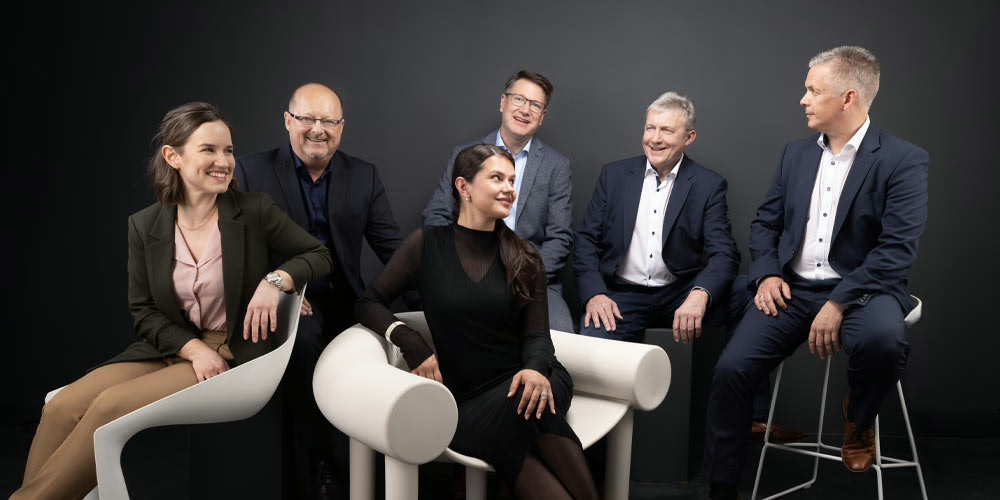Supervisory and advisory boards – composition and staffing
Expert interview with Olaf Kammerer
The composition and staffing of supervisory and advisory boards is crucial for long-term corporate development. Industry knowledge, strategic thinking and an independent perspective are key points for the ideal supervisory board.
You are here: Start » Expert interviews » Supervisory and advisory boards – composition and staffing
Supervisory and advisory boards briefly explained
A supervisory board is a legally prescribed supervisory body in corporations (e.g. stock corporations, limited liability companies above a certain size). It monitors the management, appoints and dismisses members of the management board or managing directors and has a say in important company decisions. In Germany, the supervisory board is mandatory, especially in stock companies (“AG”) and larger limited companies (“GmbH”). An advisory board is a voluntary body that assumes an advisory function. It supports the management with specialist knowledge, contacts and strategic recommendations, but has no binding control or decision-making rights like the Supervisory Board.
- Supervisory and advisory boards briefly explained
- What makes the ideal composition of supervisory and advisory boards?
- What specific qualifications should potential members have?
- What role does experience play in the composition of a committee?
- How do you go about finding suitable candidates?
- What advantages do you see in finding an ideal mix, and what challenges or risks arise from your experience in putting together such committees?
- What trends are you currently observing in the composition of supervisory boards and advisory boards?
- Why should companies use a personnel consultancy when filling advisory board positions?
- What advantages do you see in working with an HR consultancy for the long-term development of the company?
- What do you recommend to companies that want to make the best possible appointments to their boards?
What makes the ideal composition of supervisory and advisory boards?
Olaf Kammerer: An ideal composition is characterized by a balanced mix of expertise, diversity and an independent perspective. The members should not only have comprehensive industry knowledge, but also a strategic and entrepreneurial mindset. At the same time, it is important that different perspectives are represented in order to be able to make well-founded decisions. Diversity in terms of gender, cultural background and experience is playing an increasingly important role.
What specific qualifications should potential members have?
Olaf Kammerer: That depends very much on the requirements of the company in question. As a rule, however, members should have expertise in the areas of finance, law, strategy and, if applicable, technology. For companies in specialized industries, in-depth knowledge of market structures and competitive environments is also essential. Soft skills such as communication skills, integrity and team spirit are also essential. A good advisory or supervisory board member should also be able to ask critical questions and address uncomfortable topics.
What role does experience play in the composition of a committee?
Olaf Kammerer: Experience is a double-edged sword. Of course, an experienced supervisory board brings valuable insights and a broad network. At the same time, there is a risk that a board that is too homogeneous and has been established for decades will overlook new developments and innovations. It is therefore important to include younger or unconventional candidates who can bring a breath of fresh air and new ideas.
I will be happy to advise you!
How do you go about finding suitable candidates?
Olaf Kammerer: The process begins with a detailed needs analysis. Together with the company, we define the requirements for the position and identify which skills and personality traits are needed. This is followed by a targeted approach to potential candidates via our network and intensive market analyses. The decisive factor here is not only the professional qualifications, but also whether the candidate is a good cultural and strategic fit with the corporate philosophy. During interviews and assessments, we then check whether the candidates meet the desired requirements.
What advantages do you see in finding an ideal mix, and what challenges or risks arise from your experience in putting together such committees?
Advantages
Disadvantages
What trends are you currently observing in the composition of supervisory boards and advisory boards?
Olaf Kammerer: One clear trend is increasing internationalization. Companies are increasingly looking for experts who can contribute global perspectives. The topic of ESG (environmental, social, governance) is also becoming increasingly important. Companies attach importance to having members who are well-versed in these areas. In addition, the call for more diversity is becoming louder and louder. Women and candidates from different cultural backgrounds are increasingly being considered.
Why should companies use a personnel consultancy when filling advisory board positions?
Olaf Kammerer: A recruitment consultancy brings specific expertise and an extensive network that companies often lack. Not only can we identify potential candidates more quickly, but we can also target those who are not actively looking but would still be suitable for the position. We are also neutral and can objectively assess the suitability of candidates without internal prejudices or political considerations. Particularly in the case of advisory boards that influence strategic decisions, it is crucial to ensure a structured and professional selection process.
What advantages do you see in working with an HR consultancy for the long-term development of the company?
Olaf Kammerer: Working with an HR consultancy ensures that not only the current needs but also the future challenges of the company are taken into account. We can help to strategically position committees so that they can react flexibly to changes in the market. Companies also benefit from our view “from the outside”, which often reveals new perspectives. A professionally staffed advisory board is an important competitive advantage.
What do you recommend to companies that want to make the best possible appointments to their boards?
Olaf Kammerer: Companies should plan for the long term and create clear requirement profiles. It is important to consider not only the current, but also the future strategic direction of the company. I also advise being open to unconventional candidates and consciously promoting diversity. Professional support from experienced recruitment consultants can make the process much easier and significantly increase the chances of a successful appointment.
Executive Search Consultant for electrical engineering, automation and electronics
Olaf Kammerer is Managing Director of DELTACON Nuremberg GmbH Executive Search and is responsible with his team for the electrical engineering, automation and electronics sectors. He boasts over ten years of operational management experience as a commercial managing director and sales manager in his industries.





